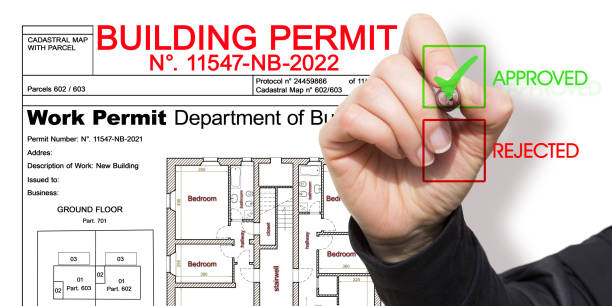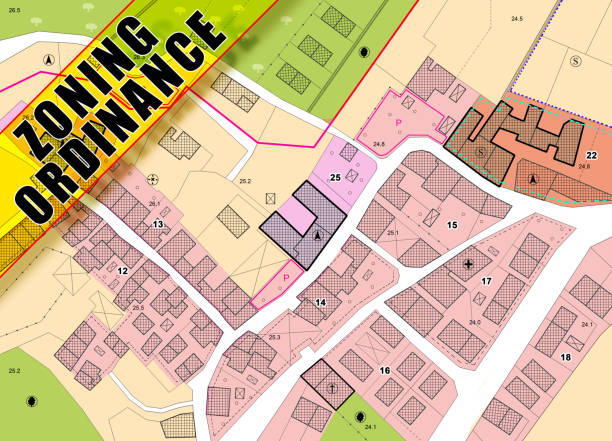AB 671 Explained: How California’s New Bill Could Fast-Track Restaurant Permits
Opening a restaurant in California is tough. Many owners face long waits, high fees, and unclear timelines before they can open their doors. These delays often drain money and momentum from promising projects.
Table of Contents
ToggleAB 671, a new bill moving through the state legislature, could change that. It proposes faster approvals and new options for restaurants looking to cut through red tape. For business owners, this bill might mean less time waiting and more time serving customers.
At JDJ Consulting, we follow these changes closely. Our team helps clients understand new rules and prepare for shifts in the permitting system. AB 671 is one of the most important updates for restaurant development in 2025.
What Is AB 671 and Why Now?
AB 671 is designed to make restaurant permitting quicker and more predictable. Today, many restaurant projects stall for months while plans sit in review. These delays raise costs, cause uncertainty, and discourage investment.
The bill addresses these issues by requiring faster responses from building departments. It also opens the door for certified professionals, such as architects and engineers, to help move projects forward. This could shorten the time between leasing a space and welcoming the first customer.
California lawmakers introduced AB 671 after hearing from restaurant owners across the state. Many shared stories of high costs and long waits that threatened their businesses. By streamlining permits, the state hopes to support small businesses and local economies.

Key Provisions of AB 671
AB 671 is built around one clear goal: cut the time it takes for a restaurant to get a building permit. To achieve this, the bill introduces strict timelines, new review options, and accountability measures.
Main Rules Under AB 671
20-Day Response Requirement
Local building departments must respond to permit applications within 20 business days.
If they fail to respond, the application is automatically approved.
10-Day Resubmission Rule
When owners revise and resubmit plans, agencies must reply within 10 business days.
This stops the cycle of long waits for small corrections.
Third-Party Certification
Licensed architects or engineers can certify plans meet state codes.
This gives restaurant owners another path if city reviews stall.
Accountability and Oversight
Certifiers carry liability if they make errors in their approvals.
Local agencies must audit a percentage of certified plans to ensure safety and compliance.
These changes aim to speed up restaurant projects without lowering safety standards. Instead of waiting months for a city review, owners might move forward in weeks.
Why This Matters for JDJ Clients
Restaurant Owners: Shorter timelines reduce rent loss during construction delays.
Architects and Engineers: Certification could become a new service line.
Local Governments: Must adjust operations to manage audits instead of bottlenecked reviews.
Who Stands to Benefit… or Lose?
AB 671 could shift the balance of who carries responsibility in restaurant permitting. While many see clear benefits, others worry about risks and trade-offs.
Beneficiaries
Restaurant Owners and Tenants
Faster openings mean less wasted rent and fewer financing problems.
More predictability supports stronger business planning.
Small Developers and Landlords
Vacant spaces could lease faster.
Reduced downtime helps stabilize cash flow.
Architects and Engineers
Certification authority creates a new consulting role.
Strong demand may arise for professionals with liability coverage.
Key Oversight Roles Under AB 671
-
Local Agency
Ensures plan review deadlines are met. -
California Architects Board
Oversees licensed architects certifying plans. -
Board for Professional Engineers
Reviews engineer participation and compliance. -
California Building Standards Commission
Maintains building and safety standards.
Stakeholders With Concerns
Local Building Departments
Fear of losing oversight if third-party certification becomes common.
Worry that fast-track rules could lead to missed code violations.
Health and Safety Advocates
Concerned that speed could mean lower compliance on fire safety or food prep standards.
Stress the importance of strict audits to prevent accidents.
Mixed Reactions
Some see AB 671 as a boost to small business. Others view it as a shortcut that shifts risk to professionals and leaves cities with limited control.
Table: Winners and Losers Under AB 671
| Stakeholder | Likely Benefits | Possible Drawbacks |
|---|---|---|
| Restaurant Owners | Faster permits, lower holding costs, predictability | Risk of higher costs if certifier errors occur |
| Architects & Engineers | New income stream, stronger client role | Increased liability, insurance requirements |
| Local Governments | Less backlog, focus on audits | Loss of direct control, need new systems |
| Landlords & Developers | Quicker leases, reduced vacancy | Dependence on certifiers’ accuracy |
| Public Health Advocates | None | Fear of compliance gaps, weaker oversight |
JDJ Consulting’s Perspective
At JDJ, we see AB 671 as both a challenge and an opportunity:
Challenge: The system depends on balancing speed with compliance. Poorly executed certifications could create disputes and costly fixes.
Opportunity: Clients who prepare early can gain a clear edge. By working with consultants and licensed certifiers, they can cut delays and start operating sooner.
We recommend every client track this bill closely and begin exploring partnerships with qualified architects or engineers now. That way, if AB 671 passes, they can move quickly while competitors are still adjusting.
What’s the Legislative Status?
AB 671 is not yet law. Like any bill, it must move through several steps before becoming effective. Understanding its status helps restaurant owners and consultants prepare for possible changes.

Where the Bill Stands Now
Assembly Approval
AB 671 passed the California Assembly earlier in 2025.
The vote reflected strong support from restaurant groups.
Senate Review
The bill is now under review in the California Senate.
A hearing with the Senate Appropriations Committee is scheduled before the end of summer.
Possible Amendments
Lawmakers may add limits or adjustments based on concerns from city agencies and health officials.
The final version may look slightly different than the current draft.
Governor’s Desk
If the Senate approves, the bill will go to the governor for signature.
Only then would the rules take effect statewide.
Why Status Matters for JDJ Clients
Restaurant owners can start planning for faster approvals but should avoid making decisions on timelines until the bill becomes law.
Certifying professionals should prepare credentials and insurance coverage in case the certification pathway becomes official.
Local agencies may need to budget for audits and system changes.
Bottom line: AB 671 is promising but not final. Clients must watch for updates, as final approval could come quickly once the legislative calendar moves forward.
Strategic Implications for JDJ Consulting Clients
AB 671 has wide-ranging effects. Different groups will need different strategies to adapt if it passes.
Restaurant and Retail Clients
Plan Ahead: Start preparing documents and drawings now. A faster timeline means you must be ready to submit quickly.
Engage Certified Experts: Build relationships with architects or engineers who qualify as certifiers.
Budget Adjustments: Shorter permitting may reduce holding costs, but factor in certifier fees.
Architects and Engineers
New Role: Offering plan certification could create a strong revenue stream.
Liability Prep: Invest in insurance coverage to handle increased responsibility.
Training: Stay current with code updates, since certifiers will be directly accountable.
Local Governments
Audit Planning: Develop systems to check certified plans after approval.
Shift in Focus: Move resources from backlog processing to oversight roles.
Community Messaging: Reassure residents that faster approvals will not reduce safety standards.
JDJ Consulting’s Value Add
Our role is to help clients succeed in this new environment.
For Owners: We provide guidance on documentation and connect them with trusted professionals.
For Architects: We advise on liability, compliance, and how to build certification into their services.
For Agencies: We assist with audit design and policy adjustments.
JDJ’s strength lies in navigating new regulations. With AB 671, that means turning legislative change into real opportunity for our clients.
AB 671 Permit Review Timeline
Old Process
60–120 days
uncertain delays
AB 671
20 days for review
10 days resubmission
*Based on proposed Government Code updates in AB 671
Conclusion & Forward Look
AB 671 represents a major shift in how California handles restaurant permitting. If passed, it could cut review times from months to weeks. For many business owners, this difference could decide whether a restaurant survives or fails before opening day.
The Promise
Faster Approvals: Owners can open doors sooner and reduce wasted rent.
More Certainty: A clear timeline allows better planning and financing.
New Roles for Professionals: Architects and engineers may step into a stronger role as certifiers.
The Risks
Compliance Pressure: Mistakes in certification could create costly disputes later.
Public Safety Concerns: Critics argue that rushing approvals may overlook health or fire codes.
Uneven Readiness: Some cities may struggle to build audit systems fast enough.
Why It Matters for JDJ Clients
At JDJ Consulting, we know that regulatory changes often bring both opportunities and risks. AB 671 is no exception. The key is preparation:
Owners should prepare projects now to act quickly if the bill passes.
Professionals should position themselves to provide certification services responsibly.
Agencies should prepare oversight structures before the rules take effect.
Forward Look
The bill is still moving through the legislature. If approved, it will likely roll out in phases. That means the businesses who prepare early will gain the most.
JDJ Consulting will continue to track AB 671 closely. We’ll share updates, guide clients through transitions, and help ensure every project stays compliant and on schedule. Call us at (818) 793-5058 to talk to our consultant.
AB 671: Benefits and Risks
Benefits
- Faster tenant improvement approvals
- Lower startup costs for restaurants
- More predictable timelines for developers
Risks
- Compliance mistakes may increase disputes
- Local building departments face higher pressure
- Public safety concerns if oversight weakens
FAQs on AB 671 and Restaurant Permitting
What is Assembly Bill 671 and why does it matter for restaurants?
Assembly Bill 671 is a new California bill focused on permits. It requires local building departments to speed up reviews for restaurants. This helps owners cut delays and open sooner.
How will local agencies handle faster reviews under AB 671?
Local agencies must shift how they work. Instead of long reviews, staff will check certified plans and confirm compliance. They must follow the Health and Safety Code and California Building Standards Law.
What role does the Government Code play in AB 671?
AB 671 amends parts of the Government Code. These changes set new deadlines for review. Departments must respond in 20 or 10 days, making the process more predictable.
How does AB 671 affect tenant improvement projects for restaurants?
Tenant improvements include changes like new kitchens, vents, or seating. Under AB 671, these projects get faster reviews. A licensed architect or professional engineer can certify plans to save time.
Will housing element laws influence how AB 671 is applied?
Yes. Cities already face strict rules under Section 65584 on housing elements. AB 671 adds similar pressure to meet restaurant permit deadlines. Both laws show the state wants faster land use approvals.
How could income household thresholds connect to AB 671’s impact?
Many small restaurants serve lower income households. Faster permits reduce costs for owners. This may help keep rents affordable for food service establishments.
Does AB 671 align with California Environmental Quality Act requirements?
Yes. The bill does not bypass CEQA. If a restaurant project requires an environmental impact report, it still must follow the California Environmental Quality Act.
What standards will certifiers follow when approving plans?
Certifiers must follow rules from the California Building Standards Commission. They also use the California Retail Food Code and development standards. A certified plan must meet all laws before it is approved.
Which boards will oversee certifying professionals under AB 671?
Two boards oversee these professionals. The California Architects Board monitors architects. The Board for Professional Engineers, Land Surveyors, and Geologists oversees engineers.
How does AB 671 connect to broader land use policy?
The bill is part of a larger trend in California. The state is streamlining land use approvals. This covers housing, emergency shelters, and restaurant permits alike.
What does AB 671 mean for food facilities and inspections?
Food facilities still face inspections. These follow the California Retail Food Code. But permits for tenant improvement projects should move faster under AB 671.
How could nonprofit corporations and state grants be involved?
Nonprofit corporations may use AB 671 to cut costs on mixed-use projects. State grants or federal programs could combine with faster permits. This would support public facilities and community food producers.
How will local building departments adjust to AB 671?
Local building departments must respond faster under AB 671. They will need clear processes to review certified plans while still enforcing development standards. This reduces delays for food facilities and food service establishments.
What happens if a project conflicts with local building standards?
If a certified plan does not meet local building standards, the local agency can still reject it. AB 671 does not remove safety checks. Owners must follow the California Building Standards Law and Health and Safety Code.
Does AB 671 affect affordable rent or income household needs?
Yes, indirectly. By cutting tenant improvement delays, small restaurants can open with lower costs. This helps operators serve lower income households and makes affordable rent options for food service establishments more realistic.
How do housing element and land use policies connect with AB 671?
California ties housing element law (like Section 65584) to local land use planning. AB 671 applies the same logic to restaurants. Both aim to remove bottlenecks that block residential development, emergency shelters, or food facilities.
Error: Contact form not found.






